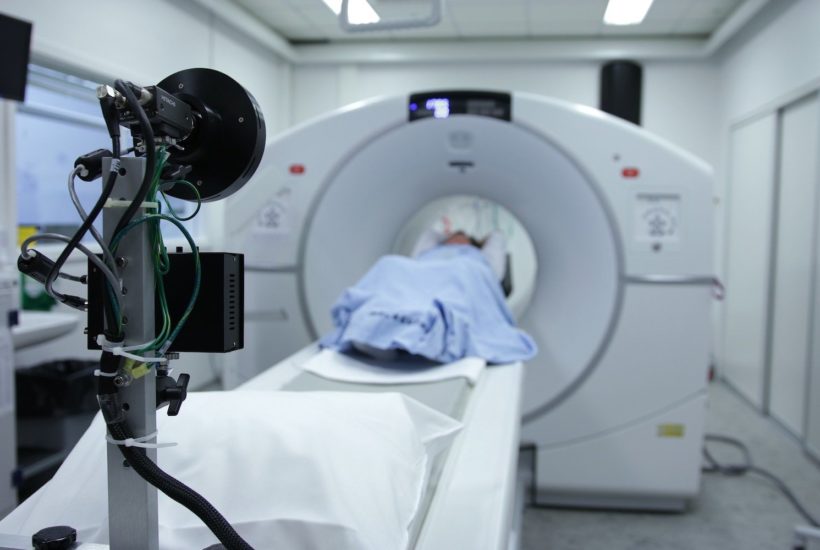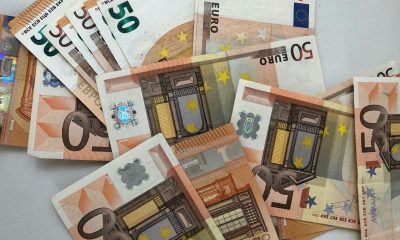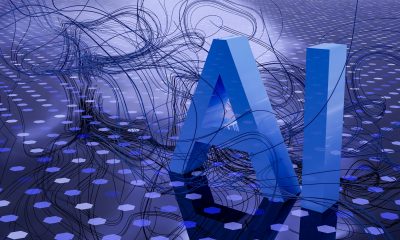Biotech
Gleamer raises €7.5 million to export its automatic fracture detection software
Paris-based medtech company Gleamer raises $8.7 million (€7.5 million) to accelerate the deployment of its automatic bone fracture detection software. Designed for radiologists, BoneView analyzes medical images and frames the injured area(s). The objective is to free up the practitioner’s time to enable him or her to perform tasks with higher added value.

The startup Gleamer, a specialist in automated bone fracture detection, has just raised $8.7 million (€7.5 million). The latest fundraising to the amount of $1.75 million (€1.5 million) took place in September 2018.
The round was led by XAnge, with the arrival of MACSF, Majycc eSanté Invest and Crista Galli Ventures, and the participation of historical investors Elaia and the fund Ambition Amorçage Angels (F3A), managed by Bpifrance as part of the investment program for the future (PIA). 37 radiologists also took part in this round of financing.
If you want to find more details about the last fundraising the French biotech company Gleamer has completed and what it plans to do with the money, download for free the Born2Invest mobile app. Stay up to date with the latest business headlines with our companion app, the best online news aggregator.
BoneView is freeing up radiologists’ time
Founded in 2017, the young Parisian company has developed software based on artificial intelligence that detects lesions in trauma radiography. This tool, called “BoneView”, is aimed at radiologists who spend a large part of their time doing traumatic X-rays.
The software is associated with the X-ray machine, it will detect the fractured area(s) on the medical image and present its conclusions to the practitioner. In practice, BoneView frames the injury on the X-ray to allow the radiologist to visualize the injury.
The objective of BoneView is to automate the reading of medical images to free up the practitioner’s time to focus on higher value-added tasks. According to a clinical study conducted by Gleamer, BoneView software has reduced the rate of undetected fractures by 30%, while significantly reducing the time required to read X-rays.
The software is used by 10% of French radiologists
BoneView has obtained the CE mark, an indispensable label for marketing in the European Union. It is now used by more than 50 hospitals, including the AP-HP hospital group, and clinics in France and has 800 users, “representing nearly 10% of all French radiologists,” said the young company, which has around 50 employees.
AI is starting to be increasingly used in the medical sector
Thanks to this new financial contribution, Gleamer hopes to accelerate the deployment of its AI software in Europe, the Middle East and Latin America. It also wants to conquer the American market, which requires approval by the Food and Drug Administration (FDA), the agency in charge of regulating food, drugs and medical devices in the United States. Finally, the company aims to expand its products beyond radiology.
The contribution of artificial intelligence in the medical sector is well established, particularly in radiology. For this reason, Gleamer is not the only company in this market. The Parisian startup AZmed markets a software that detects fractures, a solution very similar to the one proposed by Gleamer. Giants are also present in this sector. The German company Siemens Healthineers has developed a software capable of automatically detecting the different organs of the thorax and the signs of a disease in a single click. “AI-Rad Companion Chest C” is used in particular by radiologists at the Foch Hospital in Suresnes in the Hauts-de-Seine region of France.
__
(Featured image by Bokskapet via Pixabay)
DISCLAIMER: This article was written by a third party contributor and does not reflect the opinion of Born2Invest, its management, staff or its associates. Please review our disclaimer for more information.
This article may include forward-looking statements. These forward-looking statements generally are identified by the words “believe,” “project,” “estimate,” “become,” “plan,” “will,” and similar expressions. These forward-looking statements involve known and unknown risks as well as uncertainties, including those discussed in the following cautionary statements and elsewhere in this article and on this site. Although the Company may believe that its expectations are based on reasonable assumptions, the actual results that the Company may achieve may differ materially from any forward-looking statements, which reflect the opinions of the management of the Company only as of the date hereof. Additionally, please make sure to read these important disclosures.
First published in L’USINEDIGITALE, a third-party contributor translated and adapted the article from the original. In case of discrepancy, the original will prevail.
Although we made reasonable efforts to provide accurate translations, some parts may be incorrect. Born2Invest assumes no responsibility for errors, omissions or ambiguities in the translations provided on this website. Any person or entity relying on translated content does so at their own risk. Born2Invest is not responsible for losses caused by such reliance on the accuracy or reliability of translated information. If you wish to report an error or inaccuracy in the translation, we encourage you to contact us.

-

 Cannabis2 weeks ago
Cannabis2 weeks agoKONOPEX Expo 2026: Celebrating Europe’s New Era of Legal Cannabis
-

 Biotech4 days ago
Biotech4 days agoVolatile Outlook for Enlivex Therapeutics as Investors Await Clinical Catalysts
-

 Impact Investing2 weeks ago
Impact Investing2 weeks agoInter IKEA Launches Electric Truck Fleet to Decarbonize Heavy-Duty Logistics in Italy
-

 Markets6 days ago
Markets6 days agoCotton Market Weakens Amid Demand Concerns and Bearish Trends

























